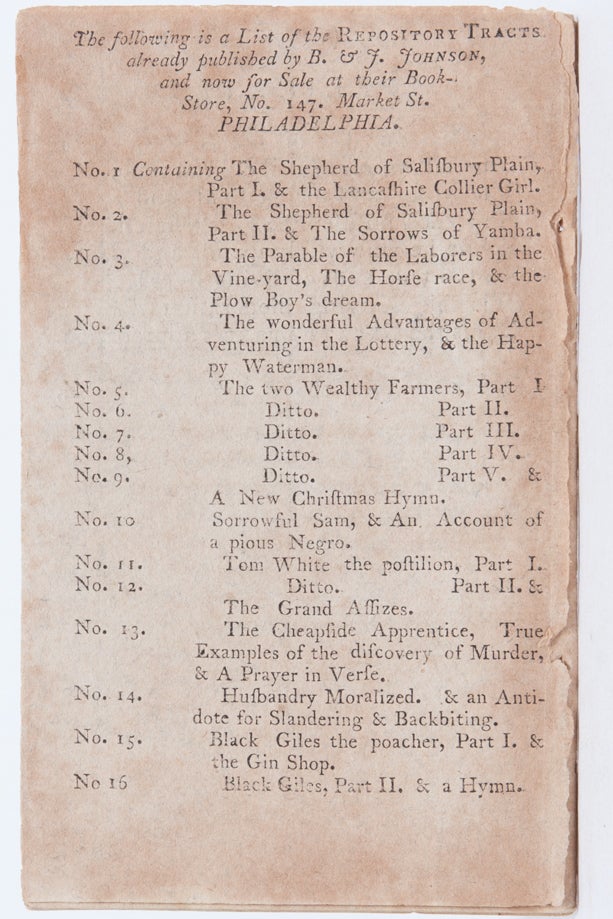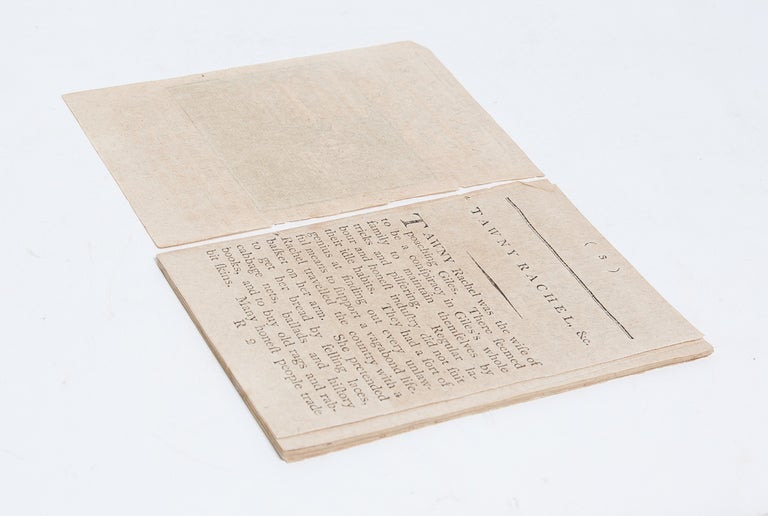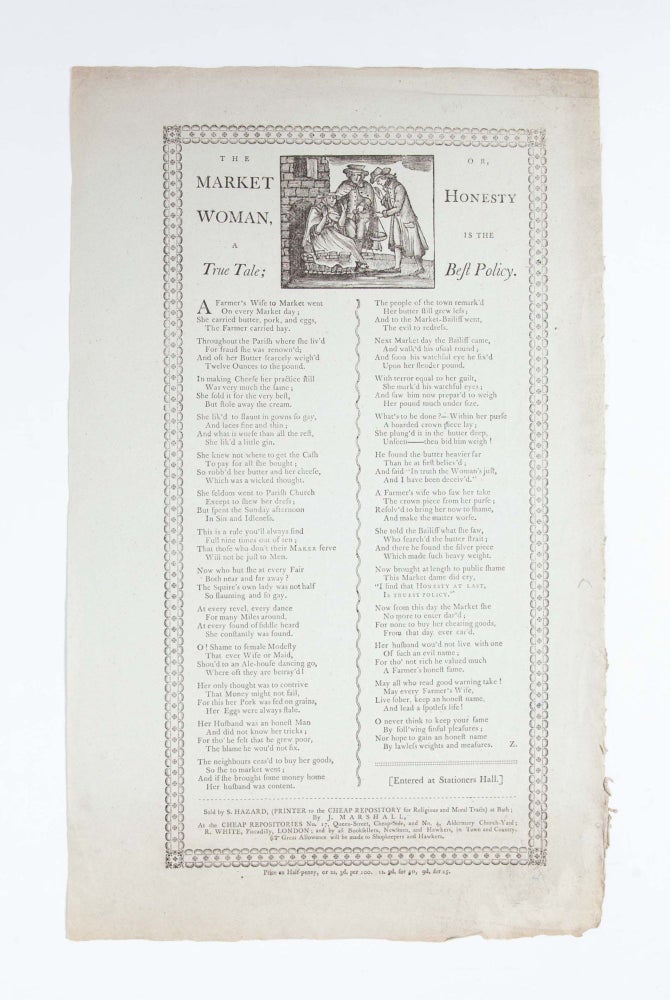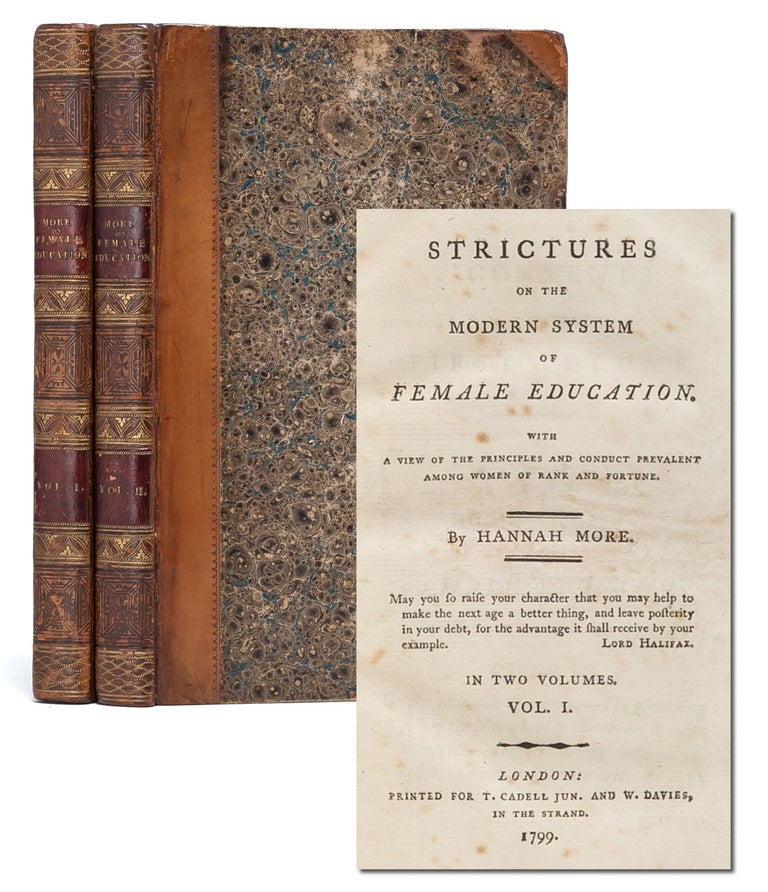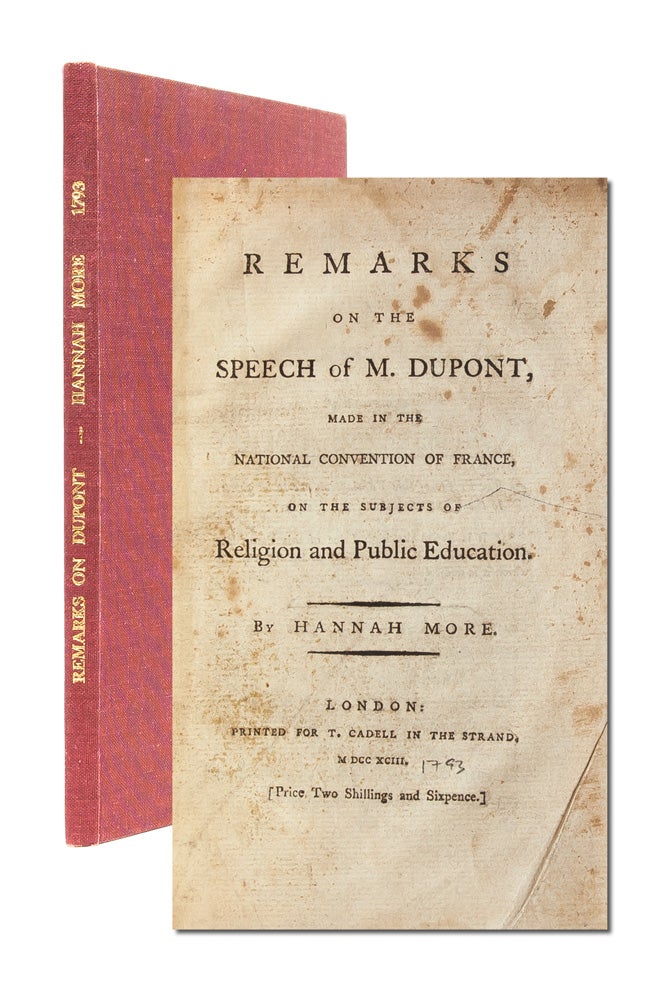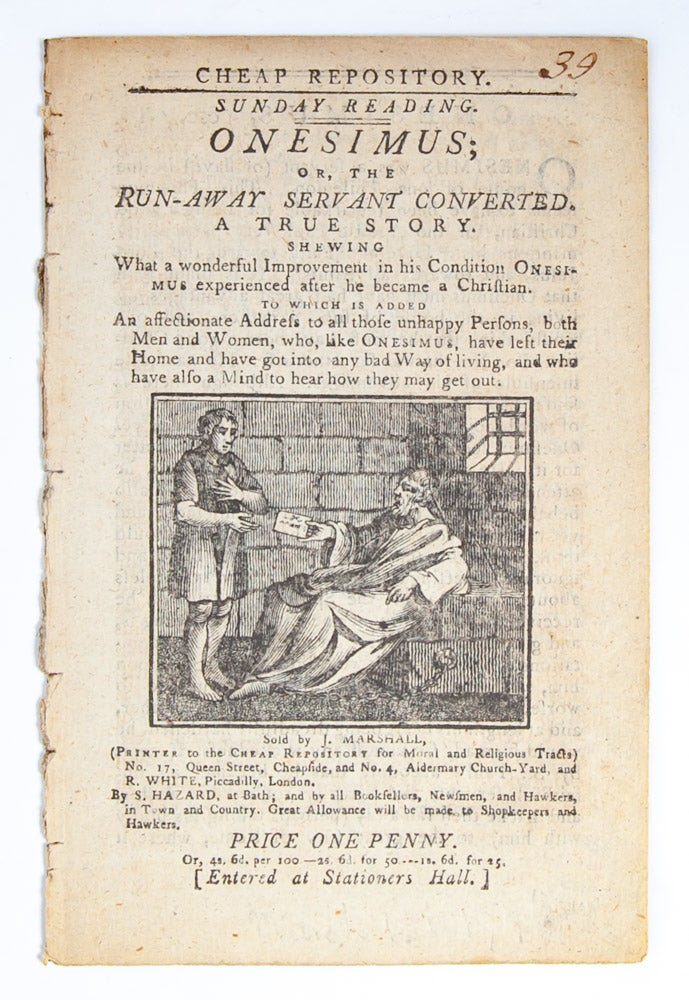The History of Tawny Rachel, the Fortune Teller, Black Giles' Wife
Philadelphia: B&J Johnson, 1800.
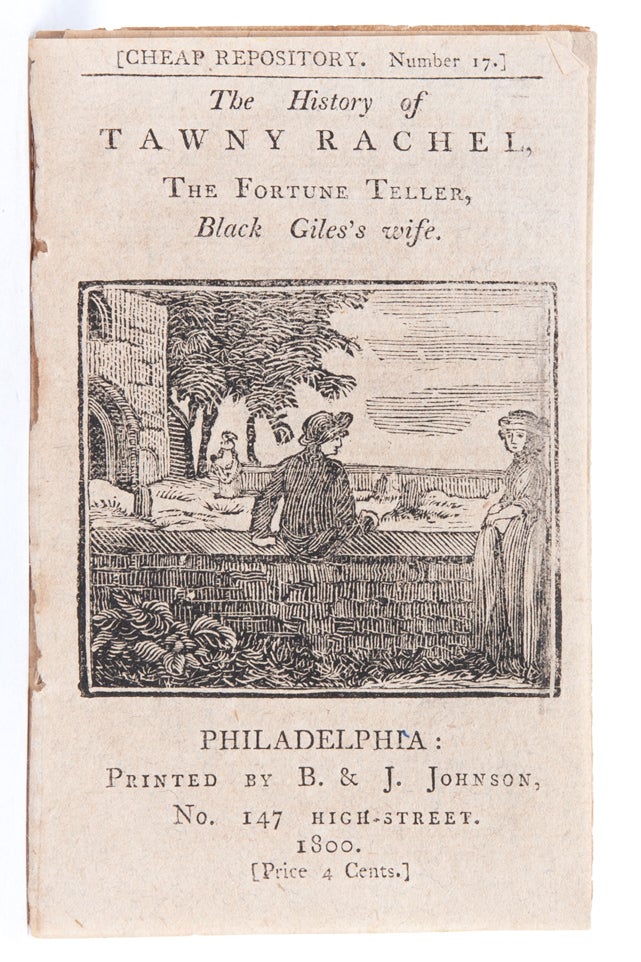

The History of Tawny Rachel, the Fortune Teller, Black Giles' Wife
Philadelphia: B&J Johnson, 1800. First American edition. Bound in self-wraps with the header Cheap Repository Number 17 to title page. First and final pages detached but present, else the chapbook pages are holding. Internally clean and complete. After the Cheap Repository released parts 1-2 of Black Giles the Poacher and a sequel Tawny Rachel in the London imprint in 1796, they distributed American editions from Philadelphia in 1800 (Cheap Repository Numbers 15, 16, and 17). About as rare as its English predecessor, the American first edition of Tawny Rachel is held by 5 institutions according to ESTC, and it last appeared at auction in 1959.
"Cheap Repository Tracts were a popular series of chapbooks written by evangelist Hannah More. Cheaply produced and therefore affordable to many, these moral tales were intended to discourage political dissent and unscrupulous lifestyles. Politically conservative, the stories were made more appealing by the addition of woodcut illustrations" (British Library). While the two tracts preceding Tawny Rachel focused on Black Giles' laziness and trafficking in poached goods (both listed in the List of Repository Tracts Already Published on p. 36), the present followup turns attention to Giles' wife, who uses her fortune-telling to cheat neighbors and lead good women astray. "I have thought it my duty to print this little history as a kind warning to all you young men and maidens not to have anything to say to Cheats, Imposters, Cunning Women, Fortune Tellers, Conjurers, or Interpreters of Dreams...I assure you that God never reveals to weak and wicked women those secret designs of his providence." So More concludes the History of Tawny Rachel, a character who uses her racial difference to convince townspeople that she has an ancient and mystical ability to predict their futures and, in turn, cheats them out of their money and goods. A seeming response to the rising popularity of almanacs and dream books attributed to female authority figures such as Mother Bridget, Mother Bunch, and Mother Shipton, who were "doubtless intended to attract...a largely female readership," More is uncompromising in her depiction and final assessment of Rachel (Perkins). Unlike most figures in the Cheap Repository Tracts, who learn their lessons and find redemption, "the author paints a damning picture of all members of this family" (British Library). Around the same time that her husband dies of injuries from an armed robbery in Number 16, Rachel is sentenced to prison for her crimes at the end of Number 17. A fascinating opportunity for studying the intersections and related tensions among classism, racism, religious ideology, and activism on behalf of women and slaves in More's work.
ESTC W31097. (Item #2726)

